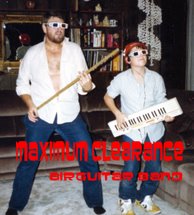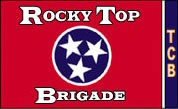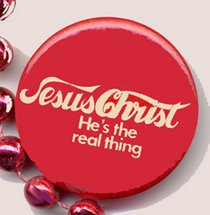The Grand Ole Opry began as the WSM Barn Dance in 1925 coming from the Life and Casualty Insurance Company building in Nashville. The show was actually rooted in the WLS Barn Dance started by George Hay who brought the idea to Nashville. The program became The Grand Ole Opry about 1927 after a humorous comment made by Hay, and soon became too large for its original location. It was all instrumental until about 1934 and as the crowds grew to watch the performers they moved a couple of times. The program finally ended up in the Ryman Auditorium in 1943. The Ryman was first opened as the Union Gospel Tabernacle in 1892 and had just over 2600 seats.
I first remember hearing the “Opry” as I lay in the backseat of my dad’s ’52 Ford. The only light, as we headed “home” to see my grandparents, was from the dashboard and an occasional car’s headlights that twirled around above me as it passed. The radio was always tuned to “clear channel” 650 AM and there was T. Tommy Cutrer, pumping out commercials and announcing the acts at 50,000 watts. You could almost see the stage and the performers on the back of your eyelids.
These memories come from about the time Kitty Wells released “It Wasn’t God Who Made Honky Tonk Angels.” She, along with sounds of Hank Snow, Little Jimmy Dickens, Eddy Arnold, Roy Acuff, Ernest Tubb, Lester Flatt and Earl Scruggs (before they parted ways), Bill Monroe, the Carter Family, Hawkshaw Hawkins, Red Foley, and Minnie Pearl and others still echo in a darkening hall of my mind.
I suppose you could say these songs shaped the way I would think about relationships with women. The lyrics about what men and women needed from each other made me think about how easily each could hurt the other. However, I cannot say it help in the long run. I still found plenty of hurt and let pride push me away from a lot, but inside I knew what I was looking for – just took a little time to find it – but thank God I finally did.
Had it not been for those songs I probably would not have recognized the right thing when she came along.
I first remember hearing the “Opry” as I lay in the backseat of my dad’s ’52 Ford. The only light, as we headed “home” to see my grandparents, was from the dashboard and an occasional car’s headlights that twirled around above me as it passed. The radio was always tuned to “clear channel” 650 AM and there was T. Tommy Cutrer, pumping out commercials and announcing the acts at 50,000 watts. You could almost see the stage and the performers on the back of your eyelids.
These memories come from about the time Kitty Wells released “It Wasn’t God Who Made Honky Tonk Angels.” She, along with sounds of Hank Snow, Little Jimmy Dickens, Eddy Arnold, Roy Acuff, Ernest Tubb, Lester Flatt and Earl Scruggs (before they parted ways), Bill Monroe, the Carter Family, Hawkshaw Hawkins, Red Foley, and Minnie Pearl and others still echo in a darkening hall of my mind.
I suppose you could say these songs shaped the way I would think about relationships with women. The lyrics about what men and women needed from each other made me think about how easily each could hurt the other. However, I cannot say it help in the long run. I still found plenty of hurt and let pride push me away from a lot, but inside I knew what I was looking for – just took a little time to find it – but thank God I finally did.
Had it not been for those songs I probably would not have recognized the right thing when she came along.
















10 comments:
Oooh, you are all orange-y. I like it.
Flatt & Scruggs, Hank Williams. . .that's my kind of music. Love the bluegrass, most especially gospel "I'll Fly Away" and any banjo pickin'.
I love your new decor!
Thinking about the Grand ole opry makes me think of my dad, he lived that stuff. He was a major bluegrass fanatic too. Me, not so much. When my daughter was little she called Bluegrass music "happy music"
Darn you are old my friend. I love classic country music but most of the singers are still younger than all the ones you mentioned.
I asked my daughter about my header and she said the site were the picture was hosted has been down for a while, she finally has her computer back so I hope she makes me a new one soon.
Hey, I, too, like your "new colors"! Seems to be a lot easier on the eyes! When I first saw it, I almost closed it out, thought it was a pop-up ad, that is, 'til I recognized the trademark "Macanudo Gold" stickin' out there, and knew I was on the right page!
Another good "clear-channel" station was AM(of course!)870, WWL/New Orleans, a.k.a., the official truckers station during "the old days". Roughly the same format(like I needed to tell YOU that!) I honestly don't know if either of these two old giants are still on-air or not. But now that you mentioned it, I think I'll go find out.....
Oh, yeah...The Louisiana Hayride was another great show that even signed Elvis after the Opry rejected him! We probably listened to that one too, but can't be sure. It seems, somewhere in the recesses of my mind, I can hear someone announce that show coming on.
I used to think I HATED country music. My time was after yours, and the sounds of the Opry over the radio were replaced with He-Haw. We had one TV and dad watched whatever sports was on and Junior Samples, so I rejected all that and would go up to my room and crank up the stereo. Told him I hated all the redneck humor and all the wining songs and big hair. It all sounded so unsophisticated compared to the rock that my generation went for.
Then, somehow, as time went by I realized how much that stuff had influenced me. Realized that Mini Pearl was hilarious, and I did enjoy watching it till much of the singing started. I see that stuff on TV now and love to watch it. Well, much of it anyway.
Now I find the rock stations playin' crap that makes no sense much of the time, and I find myself switching to the six CD changer where I've got one CD that i put together that's all old Ray Price, Willie, Waylon, Buck Owens, and some newer stuff by a few others. That old stuff kills me. I sing along with it at the top of my lungs as I'm driving down the road. The stuff that used to make me cringe, when they make their voice twist and flutter, just kills me now. Weird how we change with time.
We threw a party once and we made it a cowboy theme...Urban Cowboy was popular then. I printed out all the Waylon, Willie, Hank Jr., and few other artist's songs and we had a ball.
Everyone came wearing cowboy hats and we sang along with the LPs I had and everyone loved it.
In the dim recesses of my memory bank, I can remember Minnie Pearl saying, "I'm just so glad to be here, I could come." No one else remembers that. They think I am a degenerate. Does anyone else remember?
I love the new look.
Oh yeah, Minnie's hat with the tag still on it, but I don't remember the last part!
The Grand Ole Opry is trying to reduce the 'gray hairs' from the Opry Stage.
Last summer I had a most pleasurable conversation with 79-year-old Charlie Louvin who just released a new CD featuring one song with Elvis Costello. Charlie also did a number of shows with Elvis Presley in the 1950’s. While backstage in southern Wisconsin as he smoked a few cigarettes and signed my guitar and autographs for folks who ambled by, he kept telling me stories about the days traveling and singing with his brother, Ira. I was very interested in his stories and he seemed to get quite nostalgic as he spoke. Many a week would end for the famous brothers as they made a mad dash from far-flung places to get back to “The Mother Church of Country Music”, the Ryman Auditorium, and their set for the Opry stage. To be a member of the Opry one had to perform 26 times a year, and was paid $15.00, a far cry from what could be made on the road. Charlie estimated that an act lost on average over $50,000 per year, but he was proud to be a part of the Opry and never complained.
But now Louvin and others are losing their health insurance due to limited performances, as salaries from those performances are the basis for coverage from the American Federation of Television and Radio Artists. There is something so very wrong with this action by Gaylord Entertainment and what it says about one of our most remarkable slices of Americana, The Grand Ole Opry.
This is not just another musical venue. This is about as real and authentic a slice of history as one can get about what early radio, and early country music were all about. As such, the closer one can get to the past and experience the living stars of yesterday, the more accurate is the understanding of the time when the likes of Minnie Pearl and Roy Acuff were taking the stage. None of those singers and musicians knew what the future held, but were sure they wanted to be there when that big red curtain went up. For 82 years that tradition has endured and it is mighty sad to think that some still want to be there to perform, but have been rejected due to the age factor.
Post a Comment